
Discover the Charm of Rangpur
Nestled in the northern part of Bangladesh, Rangpur is a city that marries the vibrancy of urban life with the tranquility of nature. Known for its lush green landscapes and historical significance, Rangpur offers a unique escape for those looking to explore beyond the usual tourist trails. The city's rich history is evident in its many landmarks. The Tajhat Palace, with its grand architecture and museum, stands as a testament to the region's royal past. The Carmichael College, another historical site, offers a glimpse into the educational heritage of Bangladesh. For those interested in more recent history, the Rangpur Town Hall and the War Memorial offer poignant reminders of the country's journey to independence. Rangpur is also a haven for nature lovers. The Rangpur Zoo and the vast gardens of the Begum Rokeya University campus provide serene spots to relax and enjoy the natural beauty. The city's vibrant bazaars, such as the Rangpur City Bazaar, offer a sensory feast with their colorful displays of local produce, handicrafts, and traditional garments. The culinary scene in Rangpur is another highlight. From the spicy flavors of local Bengali cuisine to the sweet delights like 'Pitha', the city's food offerings are sure to tantalize your taste buds. Make sure to visit the local eateries to experience the authentic flavors that Rangpur has to offer.
Local tips in Rangpur
- Visit Tajhat Palace in the morning to avoid crowds and get the best photos.
- Wear comfortable shoes for walking around the Rangpur Zoo and Begum Rokeya University gardens.
- Try local food at small eateries; they often serve the most authentic Bengali dishes.
- Bargain at the Rangpur City Bazaar for the best prices on souvenirs and local products.
- Learn a few basic Bengali phrases; locals appreciate the effort and it makes navigating the city easier.
Discover the Charm of Rangpur
Nestled in the northern part of Bangladesh, Rangpur is a city that marries the vibrancy of urban life with the tranquility of nature. Known for its lush green landscapes and historical significance, Rangpur offers a unique escape for those looking to explore beyond the usual tourist trails. The city's rich history is evident in its many landmarks. The Tajhat Palace, with its grand architecture and museum, stands as a testament to the region's royal past. The Carmichael College, another historical site, offers a glimpse into the educational heritage of Bangladesh. For those interested in more recent history, the Rangpur Town Hall and the War Memorial offer poignant reminders of the country's journey to independence. Rangpur is also a haven for nature lovers. The Rangpur Zoo and the vast gardens of the Begum Rokeya University campus provide serene spots to relax and enjoy the natural beauty. The city's vibrant bazaars, such as the Rangpur City Bazaar, offer a sensory feast with their colorful displays of local produce, handicrafts, and traditional garments. The culinary scene in Rangpur is another highlight. From the spicy flavors of local Bengali cuisine to the sweet delights like 'Pitha', the city's food offerings are sure to tantalize your taste buds. Make sure to visit the local eateries to experience the authentic flavors that Rangpur has to offer.
When is the best time to go to Rangpur?
Unmissable attractions to see
Tajhat Palace
Explore the opulent Tajhat Palace in Rangpur, a historical landmark blending Mughal and European architecture, now a museum of Bengal's heritage.
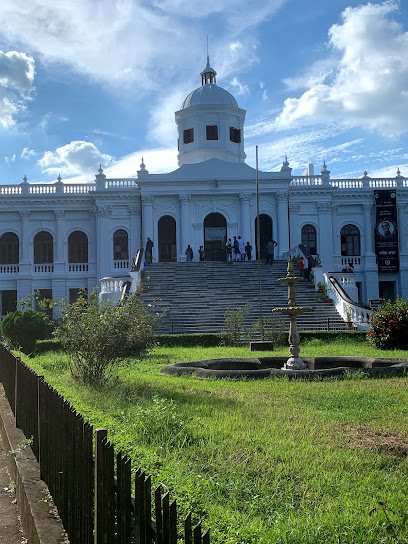
Rangpur Zoo
Discover diverse wildlife and enjoy a green escape at Rangpur Zoo, the largest zoo in North Bengal.
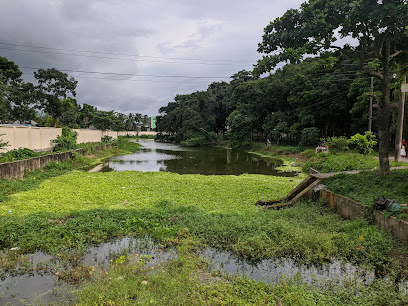
Vinnya Jagat Amusement Park
Experience thrilling rides, scenic beauty, and cultural experiences at Vinnya Jagat Amusement Park in Rangpur, Bangladesh.
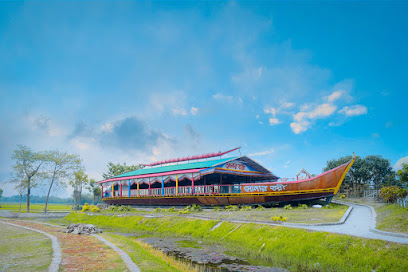
Chiklee Water Park, Rangpur
Experience aquatic thrills and cultural charm at Rangpur's Chiklee Water Park, a vibrant destination for families and thrill-seekers.
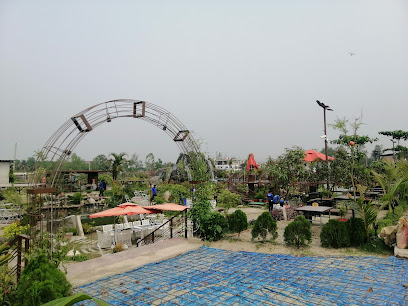
Collectorate Surovi Uddan
Discover tranquility at Collectorate Surovi Uddan, a lush park in Rangpur, Bangladesh, where nature meets community spirit and a monument honors the nation's history.
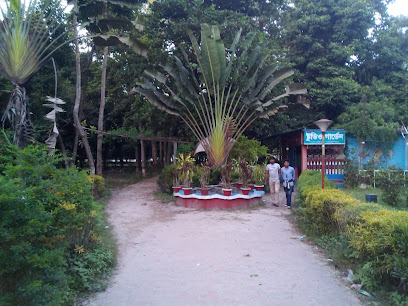
Proyash Sena Binodon Park
Discover nature, recreation, and community at Proyash Sena Binodon Park, a serene escape in Rangpur with diverse attractions for all ages.
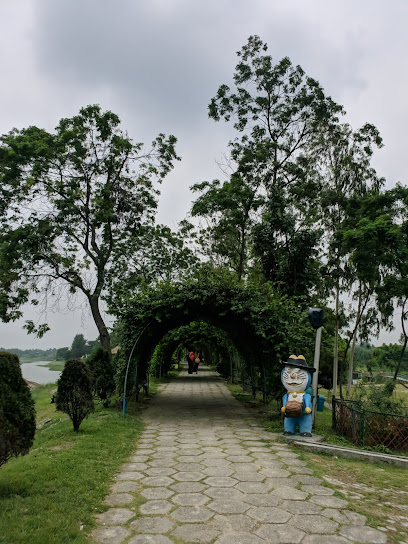
চিকলী ওয়াটার পার্ক রংপুর, সেলফি জোন
রংপুরের চিকলী ওয়াটার পার্ক: যেখানে বিনোদন আর প্রকৃতি মিলেমিশে একাকার, যা পরিবার ও বন্ধুদের সাথে কাটানোর জন্য সেরা গন্তব্য!
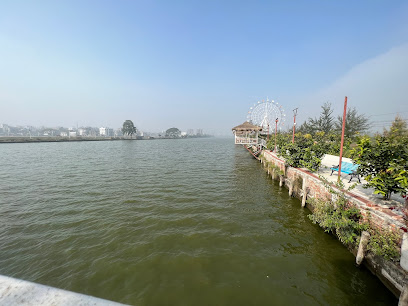
Rangpur Zoo Children's Park
Discover wildlife and family fun at Rangpur Zoo Children's Park, a refreshing escape in the heart of Rangpur, Bangladesh.
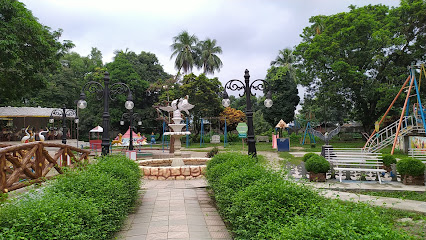
Begum Rokeya Memorial
Explore the life and legacy of Begum Rokeya, a pioneer of women's rights, at her memorial in Pairaband, Rangpur. A tribute to empowerment and education.
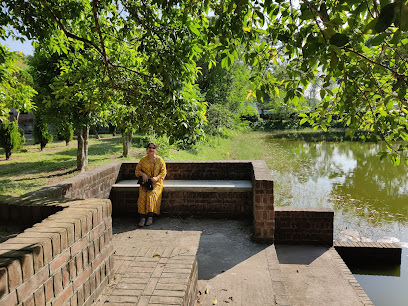
রংপুর সিটি চিকলী পার্ক, রংপুর
Escape to Rangpur City Chikli Park: A serene urban retreat with a picturesque lake, vibrant gardens, and family-friendly activities, perfect for relaxation and cultural immersion.
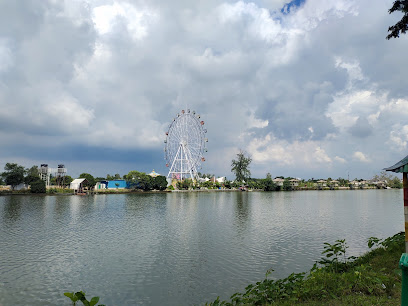
Brindabon
Escape to Brindabon Garden in Rangpur: A serene sanctuary of lush greenery, vibrant flowers, and peaceful pathways for relaxation and photography.
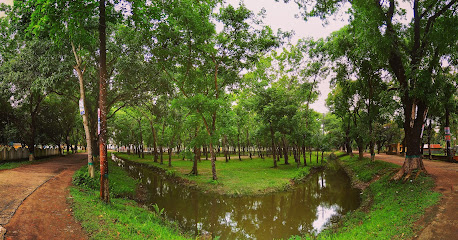
Taluk Upashu Bird Colony তালুক উপাশু পাখি কলোনি
Discover a serene birdwatcher's paradise at Taluk Upashu Bird Colony, showcasing diverse avian species in the heart of Kaliyani, Bangladesh.
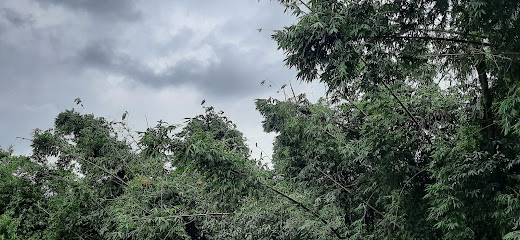
Lal Dighi
Discover the serene beauty and historical charm of Lal Dighi, a tranquil pond in the heart of Gopalpur, Bangladesh.
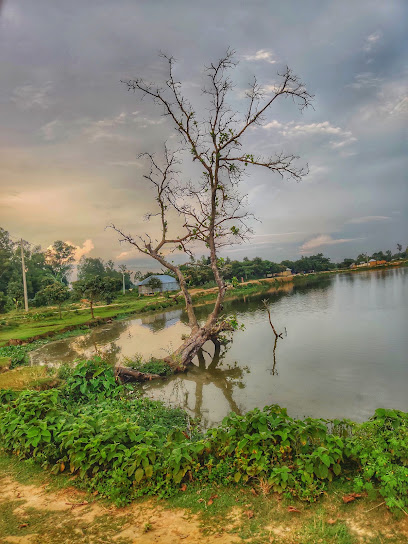
Dewanbari
Explore Dewanbari in Rangpur, a historical zamindar residence showcasing Mughal-era architecture and offering a glimpse into Bangladesh's rich cultural heritage.
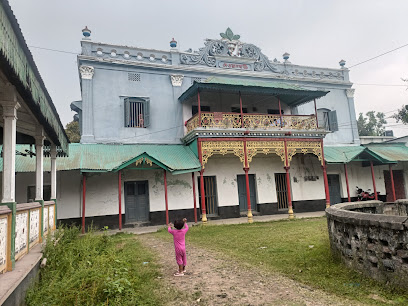
Tista Project Park
Escape to Rangpur's serene Tista Project Park: a green oasis offering relaxation, recreation, and community events amidst nature's beauty.
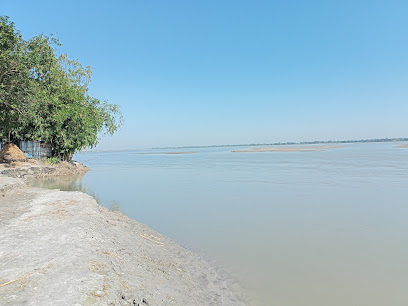
Essential places to dine
শাওন ফুড
Discover authentic Bangladeshi cuisine at শাওন ফুড in Rangpur – where every dish tells a story.

Western Cuisine Restaurant and Convention Center
Experience exquisite flavors at the Western Cuisine Restaurant & Convention Center in Rangpur – where culinary excellence meets elegant dining.
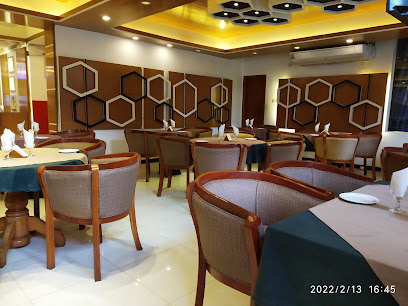
Cicily
Experience the rich flavors of Bangladesh at Cicily Restaurant in Rangpur – where tradition meets culinary excellence.
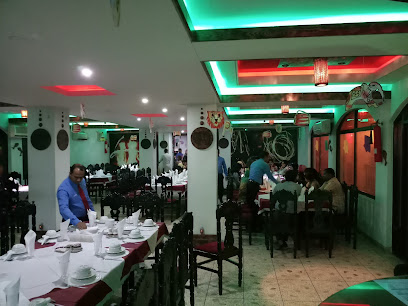
The Kitchen
Experience authentic Bangladeshi cuisine at The Kitchen on Rangpur-Dinajpur Highway - a culinary gem with rich flavors and inviting ambiance.
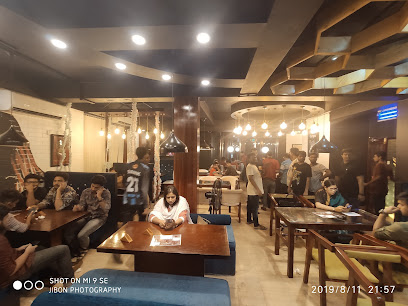
Mithu Hotel And Restaurant
Experience authentic Bangladeshi cuisine at Mithu Hotel and Restaurant in Rangpur, where every dish tells a story.
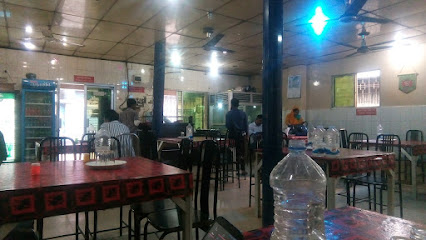
Thikana Restaurant
Experience authentic Bangladeshi flavors at Thikana Restaurant in Rangpur - where every meal is a celebration of local cuisine.
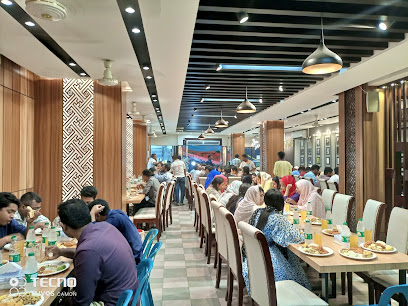
Kitchen Express - Munsipara, Rangpur
Discover the vibrant flavors of Bangladesh and beyond at Kitchen Express in Rangpur – where every meal tells a story.
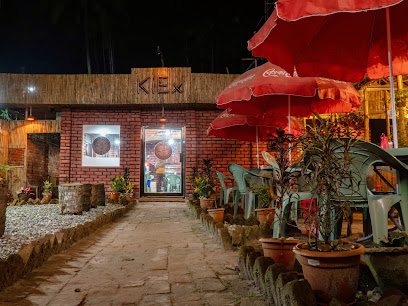
Singara House
Experience authentic Bangladeshi flavors at Singara House in Rangpur - where delicious meets affordable!
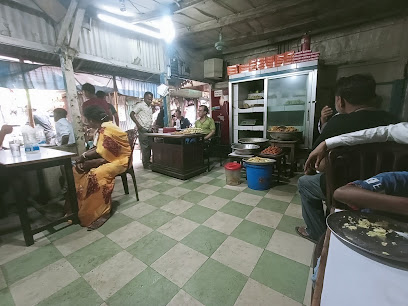
Ahar Restaurant
Discover Ahar Restaurant in Rangpur – where authentic Bangladeshi flavors meet global culinary delights in a cozy atmosphere.
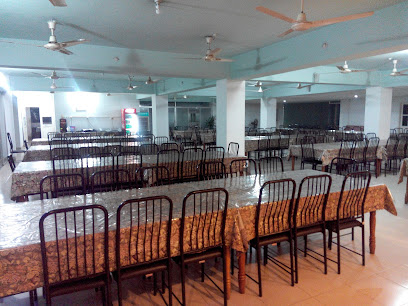
মালঞ্চ রেস্টুরেন্ট
Experience authentic Bangladeshi cuisine at Maloncho Restaurant in Rangpur - where every dish tells a story.
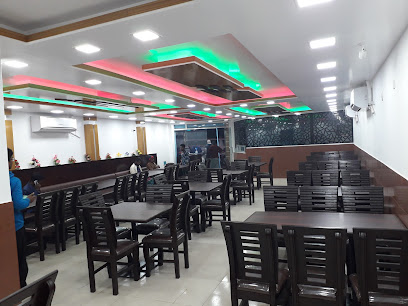
লোকমান মামার কাবাব ঘর
Discover authentic Bangladeshi barbecue at Lokman Mama's Kebab House – where every bite tells a story.
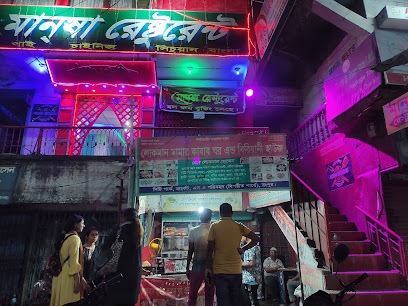
Cafe 66
Discover delightful dining at Café 66 in Rangpur—where authentic flavors meet warm hospitality.
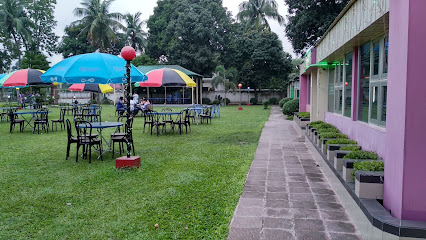
Jagannath Hotel & Restaurant
Experience authentic Bangladeshi vegetarian cuisine at Jagannath Hotel & Restaurant in Rangpur - where every meal is a taste of tradition.
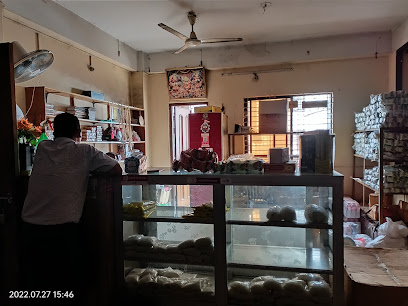
Polok
Experience authentic Bangladeshi flavors at Polok restaurant in Rangpur – where culinary tradition meets modern taste.

কয়লা ক্যাফে
Discover the flavors of Bangladesh at কয়লা ক্যাফে in Rangpur - a culinary gem offering diverse dishes in a warm atmosphere.
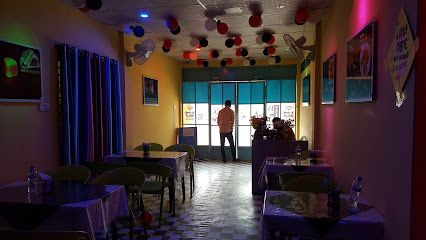
Markets, malls and hidden boutiques
RAMC Shopping Complex
Experience the essence of Rangpur at RAMC Shopping Complex, where shopping meets local culture and entertainment in a vibrant atmosphere.
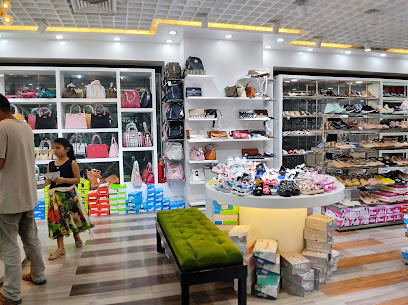
Aarong | Rangpur
Discover the essence of Bangladeshi craftsmanship at Aarong in Rangpur, where traditional meets contemporary in fashion and decor.
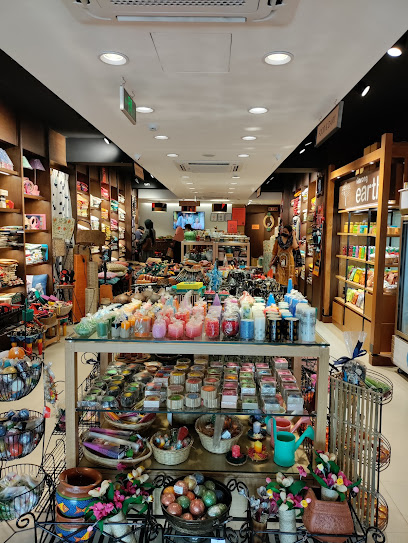
SPARK GEAR
Explore SPARK GEAR in Rangpur for the latest trends in clothing, offering stylish apparel for all ages in a vibrant shopping atmosphere.

1 to 99 + Shop
Explore 1 to 99 + Shop in Rangpur for unique gifts and local handicrafts that celebrate Bangladeshi culture and craftsmanship.
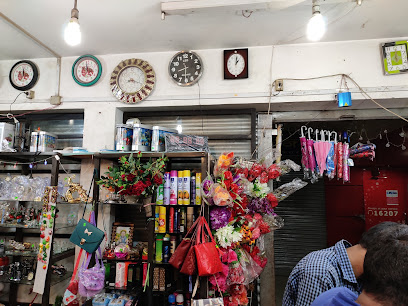
Sowda Departmental Store
Explore Rangpur's local flavors at Sowda Departmental Store, where grocery shopping meets a delightful cultural experience.
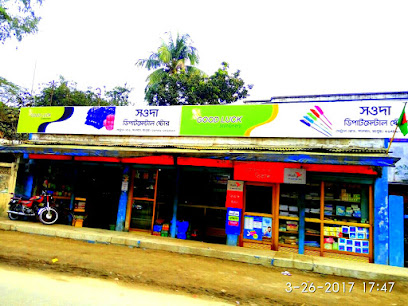
অল ইন ওয়ান স্টোর
Discover the essence of Rangpur at the All-In-One Store, your go-to destination for local goods and authentic Bangladeshi culture.
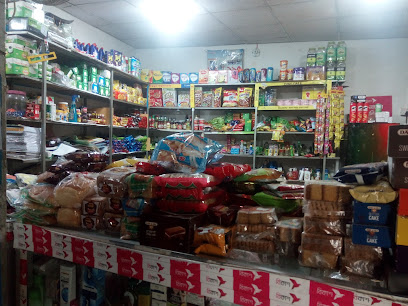
আহমেদ সিটি
Explore Ahmed City in Rangpur for a unique shopping experience with a blend of traditional and modern clothing styles.
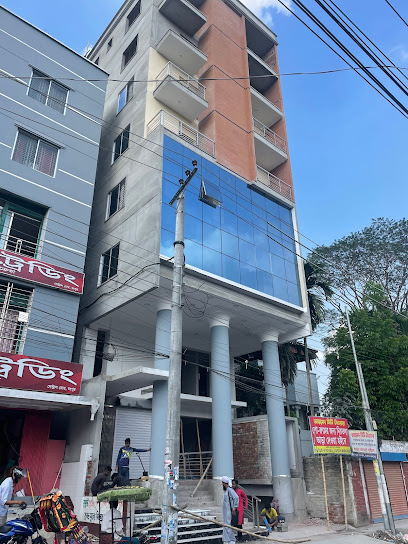
Touch Gift Shop
Explore Touch Gift Shop in Rangpur for unique souvenirs and local handicrafts that embody the spirit of Bangladesh.

GIFT BUY
Discover unique souvenirs and handcrafted gifts at GIFT BUY in Rangpur, where local artistry meets unforgettable shopping.
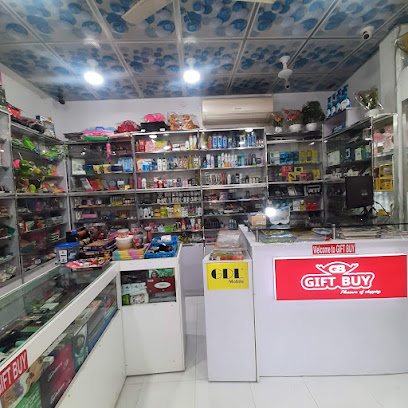
Hema Gift Center
Explore Hema Gift Center in Rangpur for unique souvenirs and local handicrafts that capture the spirit of Bangladesh.
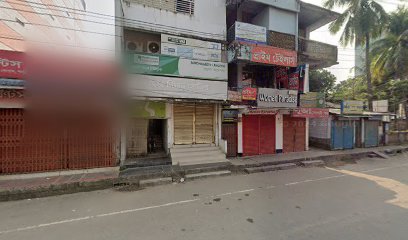
কামাল কাছনা বাজার
Explore the vibrant Kamal Kachna Bazaar in Rangpur for unique gifts, local crafts, and a taste of authentic Bangladeshi culture.

Gift Palace
Explore Gift Palace in Rangpur for unique souvenirs and local crafts that capture the essence of Bangladesh, perfect for tourists and gift enthusiasts.
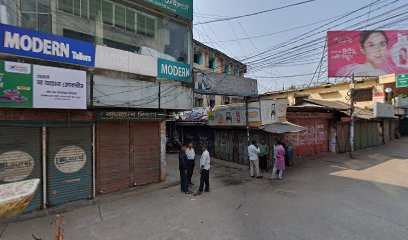
Rangpur Online Bazar
Discover the colors and styles of Bangladesh at Rangpur Online Bazar, a must-visit clothing store for tourists seeking unique local fashion.
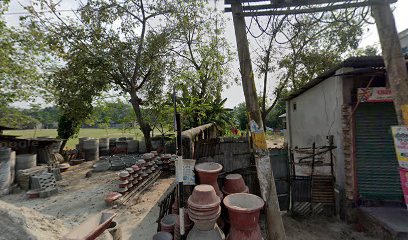
1 To 99 Plus Gift Corner
Explore the vibrant gift shop in Rangpur, offering unique local crafts and souvenirs that embody the spirit of Bangladesh.
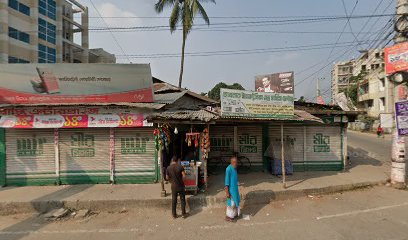
Noor Store
Explore authentic Asian ingredients at Noor Store, the premier grocery destination in Rangpur, Bangladesh, for a unique culinary experience.

Essential bars & hidden hideouts
শাওন ফুড
Experience authentic Bangladeshi flavors at Shawon Food in Rangpur, where every dish tells a story of tradition and taste.
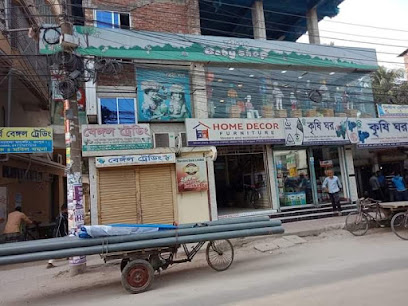
ফরেন লিকার সপ
Experience the vibrant atmosphere and diverse drink selection at ফরেন লিকার সপ, the go-to bar in Rangpur for both locals and tourists.
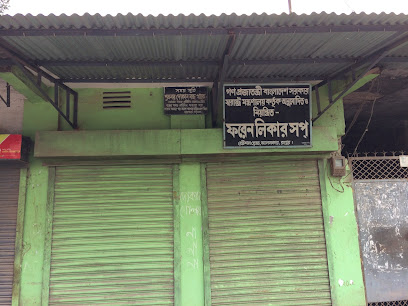
Poolside Snacks And Juice
Discover a refreshing culinary escape at Poolside Snacks And Juice in Rangpur, offering delightful snacks and rejuvenating juices by the poolside.
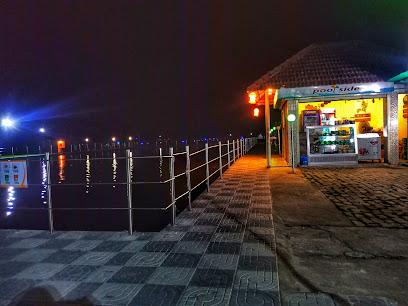
Sathmatha Pickup Stand
Discover the vibrant local culture at Sathmatha Pickup Stand, your gateway to Rangpur's hidden gems and local adventures.
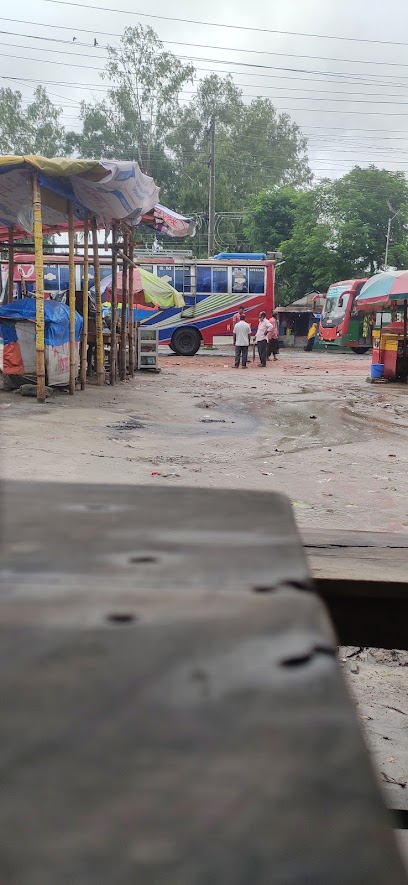
MD Abul Hossain
Experience the charm of Rangpur at MD Abul Hossain, a cozy bar offering local flavors and a warm atmosphere for relaxation.
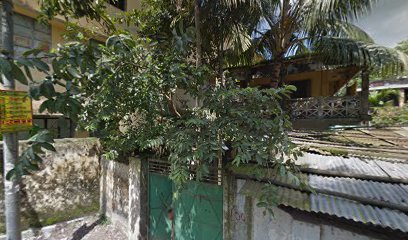
BD Food Hotel & Bar
Discover the vibrant flavors of Rangpur at BD Food Hotel & Bar, where culinary delights and a lively atmosphere await your visit.

Chinu Chatro Restroom
Discover comfort and cleanliness at Chinu Chatro Restroom, the perfect resting spot for travelers in Rangpur, Bangladesh.
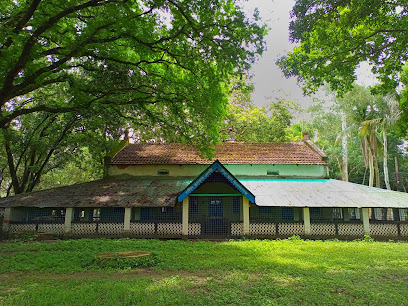
free online tv
Discover the heart of Rangpur's nightlife at this lively live music bar, where the rhythms of local culture come alive.
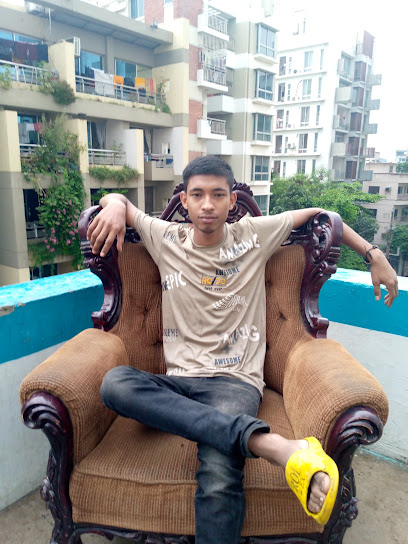
Nur Tea
Experience the warm ambiance and unique beverage offerings of Nur Tea, a charming bar in Rangpur that invites relaxation and connection.
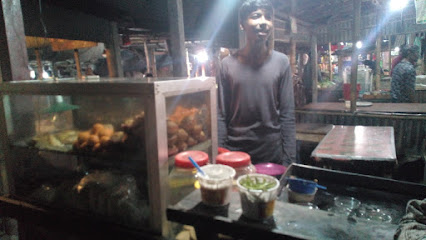
হাবিব পান বিতান
Experience the heart of Rangpur's social scene at Habib Pan Bitan, a lively bar offering flavorful pan and refreshing beverages.
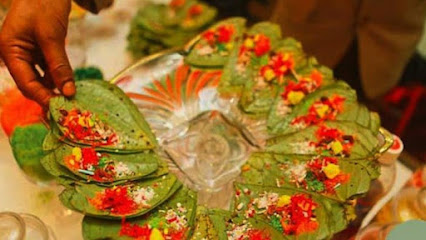
AyshaLoy
Experience relaxation and local hospitality at AyshaLoy, the ideal lounge in Rangpur for refreshment and socializing.

Salam store
Discover the lively ambiance of Salam Store, a popular bar in Rangpur, where locals and tourists converge for drinks and camaraderie.

কেরাইম রোড
Discover the vibrant bar scene of Keraim Road in Rangpur, where local culture meets relaxation in a lively atmosphere.
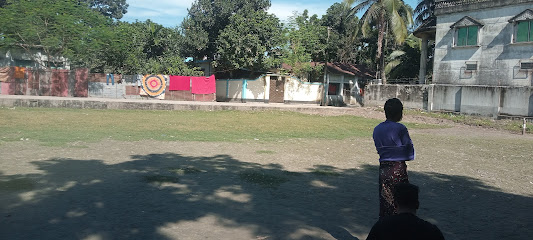
সিলেট
Experience the vibrant nightlife and local culture at সিলেট, a top bar in Rangpur offering a unique social atmosphere and diverse beverage options.

মনছূর
Unwind at Monchur, a vibrant bar in Rangpur offering local drinks, lively music, and a lively atmosphere perfect for tourists and locals alike.

Local Phrases
-
- Helloহ্যালো
[helo] - Goodbyeবিদায়
[bidae] - Yesহ্যাঁ
[haan] - Noনা
[na] - Please/You're welcomeদয়া করে/আপনার স্বাগত
[doya kore/apnar swagat] - Thank youধন্যবাদ
[dhonyobad] - Excuse me/Sorryদু: খিত
[du:khit] - How are you?আপনি কেমন আছেন?
[apni kemon ashen?] - Fine. And you?ভালো। আর আপনি?
[bhalo. ar apni?] - Do you speak English?আপনি ইংরেজি কথা বলেন?
[apni ingreji kotha bolen?] - I don't understandআমি বুঝতে পারছি না
[ami bujhte parchi na]
- Helloহ্যালো
-
- I'd like to see the menu, pleaseদয়া করে মেনু দেখাবেন
[doya kore menu dekhaben] - I don't eat meatআমি মাংস খাই না
[ami mangsh khai na] - Cheers!চিয়ারস!
[cheers!] - I would like to pay, pleaseদয়া করে টাকা দেই
[doya kore taka dei]
- I'd like to see the menu, pleaseদয়া করে মেনু দেখাবেন
-
- Help!সাহায্য!
[sahayyo!] - Go away!চলে যাও!
[chale jao!] - Call the Police!পুলিশের ডাক দিন!
[polisher dak din!] - Call a doctor!ডাক্তার ডাক দিন!
[daktar dak din!] - I'm lostআমি হারিয়ে গেছি
[ami hariye gesi] - I'm illআমি অসুস্থ
[ami osustho]
- Help!সাহায্য!
-
- I'd like to buy...আমি ... কিনতে চাই
[ami ... kinte chai] - I'm just lookingআমি শুধুমাত্র দেখছি
[ami shudhumatra dekhchi] - How much is it?এটা কত টাকা?
[eta koto taka?] - That's too expensiveএটা খুব মহঁগ
[eta khub mohong] - Can you lower the price?দাম কমাতে পারবেন?
[dam kamate parben?]
- I'd like to buy...আমি ... কিনতে চাই
-
- What time is it?এখন কতটা বাজে?
[ekhon kotta baje?] - It's one o'clockএটা একটার সময়
[eta ektaar shomoy] - Half past (10)(১০ এর) অর্ধেক
[(10 er) ordhek] - Morningসকাল
[shokal] - Afternoonদুপুর
[dupur] - Eveningসন্ধ্যা
[shondhya] - Yesterdayগতকাল
[gatkal] - Todayআজ
[aj] - Tomorrowআগামীকাল
[agamikal] - 1এক
[ek] - 2দুই
[dui] - 3তিন
[tin] - 4চার
[char] - 5পাঁচ
[pach] - 6ছয়
[chhoy] - 7সাত
[shat] - 8আট
[at] - 9নয়
[noy] - 10দশ
[dosh]
- What time is it?এখন কতটা বাজে?
-
- Where's a/the...?... কোথায়?
[... kothay?] - What's the address?ঠিকানা কি?
[thikana ki?] - Can you show me (on the map)?আপনি আমাকে দেখাতে পারবেন?
[apni amake dekhate parben?] - When's the next (bus)?পরের (বাস) কখন?
[porer (bus) khon?] - A ticket (to ....)একটি টিকেট (.... এ)
[ekti ticket (.... e)]
- Where's a/the...?... কোথায়?
History of Rangpur
-
Rangpur's history dates back to ancient times, with evidence suggesting that the area was part of the greater Bengal region under the Maurya and Gupta empires. Archaeological findings, such as ancient coins and pottery, indicate that Rangpur was a flourishing settlement engaged in trade and agriculture.
-
During the Mughal era, Rangpur gained prominence as a significant administrative and commercial hub. The Mughals established Rangpur as a district in 1686, and it became a center for trade in silk, muslin, and other goods. Several Mughal-era structures, including mosques and forts, can still be found in the region, reflecting its historical importance.
-
With the advent of British colonial rule in the 18th century, Rangpur's administrative significance was further enhanced. The British established educational institutions, infrastructure, and tea plantations in the region. The Rangpur Zilla School, founded in 1832, remains one of the oldest educational institutions in Bangladesh.
-
Rangpur played a crucial role in the Indigo Rebellion of 1859-1860, a peasant uprising against the oppressive indigo plantation system imposed by British planters. The rebellion was a significant event in the region's history, highlighting the resilience and resistance of the local people against colonial exploitation.
-
The Partition of Bengal in 1947, which led to the creation of India and Pakistan, had a profound impact on Rangpur. The district became part of East Pakistan (now Bangladesh), and the subsequent migration and demographic changes reshaped the cultural and social landscape of the region.
-
During the Bangladesh Liberation War of 1971, Rangpur was a significant battleground. The region witnessed fierce battles and significant sacrifices, contributing to the eventual independence of Bangladesh. The Rangpur Cantonment was a strategic military site during the conflict, and numerous memorials commemorate the bravery of the freedom fighters.
-
Rangpur's rich cultural heritage is evident in its traditional music, dance, and festivals. The region is known for its folk songs, including Bhawaiya, which narrate the lives and struggles of the local people. The annual Rangpur Fair showcases the area's vibrant culture, featuring traditional crafts, performances, and local cuisine.
-
Today, Rangpur is a thriving city that blends its historical legacy with modern development. The establishment of Rangpur University and other educational institutions has made it an educational hub. The city's infrastructure continues to grow, with new roads, bridges, and commercial centers enhancing its connectivity and economic prospects.
Rangpur Essentials
-
Rangpur is located in the northwestern part of Bangladesh. The nearest international airport is Hazrat Shahjalal International Airport in Dhaka, approximately 330 kilometers away. From Dhaka, you can take a domestic flight to Saidpur Airport, which is the closest airport to Rangpur, around 40 kilometers away. Alternatively, you can travel by bus or train; both options are available from Dhaka to Rangpur and typically take around 6 to 8 hours by road or rail.
-
Rangpur offers various transportation options for getting around. Local buses and cycle rickshaws are commonly used for short distances within the city. Auto-rickshaws (CNGs) are also available and are a convenient way to travel. For longer trips, taxis and ride-sharing services can be hired. Renting a car is another option, but driving conditions can be challenging due to traffic and road conditions.
-
The official currency in Bangladesh is the Bangladeshi Taka (BDT). Credit cards are accepted in some hotels, restaurants, and shops, but it is advisable to carry cash, especially in smaller establishments and rural areas. ATMs are available in Rangpur, so you can withdraw cash as needed. Ensure you have smaller denominations for easier transactions.
-
Rangpur is generally a safe destination for tourists. However, it is advisable to take standard precautions. Avoid walking alone at night in unfamiliar areas and keep an eye on your belongings in crowded places. Areas such as bus terminals and markets can be hotspots for pickpocketing, so stay vigilant. It is always best to stay aware of your surroundings and follow local advice.
-
In case of emergency, dial 999 for immediate assistance. Rangpur has local police stations and medical facilities available. It is recommended to have travel insurance that covers medical emergencies. For minor health issues, there are pharmacies in the city where you can purchase over-the-counter medications. Keep the contact information of your country's embassy or consulate handy.
-
Fashion: Do dress modestly and conservatively. Avoid wearing revealing clothing, especially in religious and rural areas. Religion: Do respect local customs and traditions. Always cover your head when entering mosques and remove your shoes. Public Transport: Do be respectful and give up your seat to elderly passengers. Don't eat or drink on public transport. Greetings: Do greet people with a smile and a polite nod. A handshake may be appropriate in more formal settings. Eating & Drinking: Do try local delicacies and accept food offerings graciously. Don't refuse hospitality, as it is considered impolite.
-
To experience Rangpur like a local, visit the local bazaars such as Rangpur City Bazaar, where you can buy fresh produce and traditional Bangladeshi goods. Engage with locals, as they are often friendly and willing to share stories about the city's history and culture. Don't miss visiting the Tajhat Palace and the Carmichael College, which are significant historical sites. For a unique experience, attend a local cultural event or festival to immerse yourself in the local traditions.
Nearby Cities to Rangpur
-
Things To Do in Phuentsholing
-
Things To Do in Siliguri
-
Things To Do in Rajshahi
-
Things To Do in Darjeeling
-
Things To Do in Gangtok
-
Things To Do in Paro
-
Things To Do in Thimphu
-
Things To Do in Wangdue Phodrang
-
Things To Do in Punakha
-
Things To Do in Trongsa
-
Things To Do in Dhaka
-
Things To Do in Guwahati
-
Things To Do in Jakar
-
Things To Do in Bumthang
-
Things To Do in Mongar








